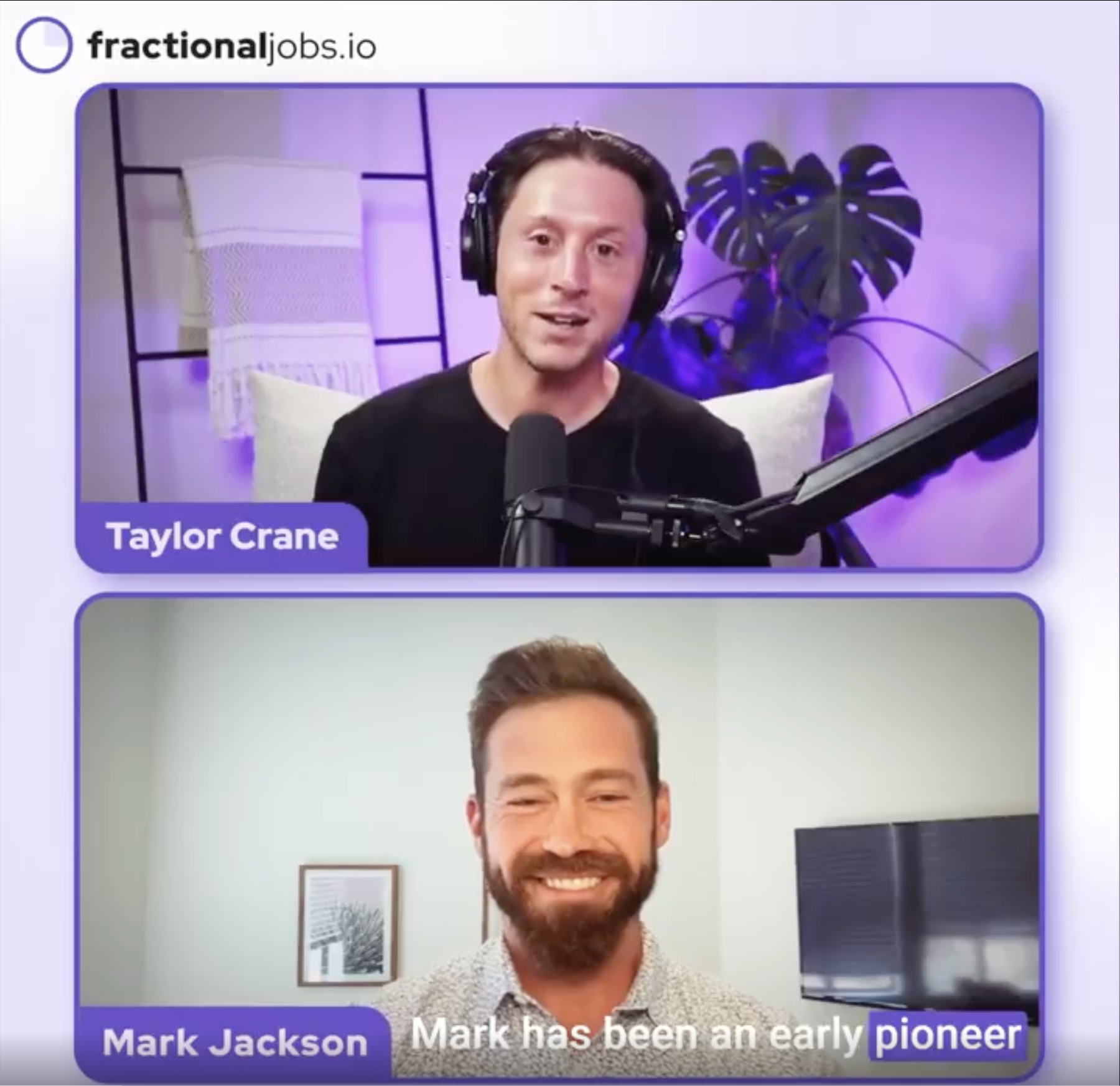The Fractional Interview Series: Mark Jackson, On Building Besolo to Empower Fractionals

In the Fractionally Speaking series, we feature top fractional executives in a rapid-fire Q&A format. It’s bite-sized, giving you an inside look at how the best in the business approach fractional work; all in about five minutes.
Today, we’re hosting Mark Jackson, an early pioneer in the fractional space. Mark has spent years as a fractional CMO and CRO, and while he’s no longer doing fractional work, he’s now the CEO of Besolo, building the tools that fractional leaders need to run their businesses. In this episode, we’re going to talk about fractional work from both the perspective of doing the work and looking at the industry as a whole, exploring its direction and growth.
I asked Mark questions like:
- “What’s the hardest thing about doing fractional work?”
- “What do you see the workforce looking like in 10 years with respect to self-employment?”
- “As a hirer of fractional leaders, what motivates you?”
- “Are there characteristics you look for when hiring fractional that you wouldn’t look for when hiring full-time?”

The Interview
Taylor: When did you start doing fractional work?
Mark: 2011 was when I first started doing fractional-type work.
Taylor: Did you just say 2011? Interesting! Do you remember when you first adopted the word “fractional”?
Mark: 2017.
Taylor: 2017 is also early to be using that word! That’s really incredible. Do you remember why you were so attracted to this model?
Mark: The fractional engagement really played nicely with the way I like to approach problems: let’s define how much time I have to fix this stuff, and then we’ll keep digging. We can go as wide as needed to figure out what the drivers are.
Taylor: What’s the hardest thing about doing fractional work?
Mark: Nailing the pipeline of clients was always hard. Almost everything I got was from word of mouth, and it really ebbs and flows.
Taylor: A little over a year ago, you started Besolo. Why is this a problem you’re solving?
Mark: Another brick wall I faced as a fractional was access to benefits. My wife is a kidney transplant patient, and when you’re dealing with that type of challenge as a household, access to benefits means a lot. I just felt like somebody had to try to fix that.
Taylor: The idea started with benefits and expanded into the entire back office?
Mark: We were contemplating Besolo all the way back at the end of 2023. I wondered if I could take some of my past experience in the HR PEO world and pool a bunch of people under one payroll to unlock benefits for solos. It’s about creating economies of scale—how can we be a group of solos, not just one solo trying to get benefits? We realized we needed to support all the other pieces to make that happen. Before we knew it, we had a whole benefits, tax, and admin platform to make it possible.
Taylor: What do you think the workforce will look like in 10 years with respect to self-employment? What trend are you seeing?
Mark: It all comes down to one key point. We’re floating around mid-40% in this country for people who have independent work in their life, in some way, shape, or form. Half of the workforce will have independent fractional work in their lives in the next five years or less. 70% of people are doing it because they want to, not because they’ve been forced by layoffs or AI pushing them out. It’s still mostly driven by choice. Another big trend is the portfolio career, where people do part gig, part fractional, and part-time W2. We’re going to see a lot more of this, where people’s income is made up of a pie, not a line.
Taylor: Switching gears a bit now, you’re a hirer of fractional leaders too. In fact, you’ve used Fractional Jobs to hire. Why do you do it? What motivates you on the hirer side?
Mark: For a startup that has as many balls in the air as we do, I’d much rather get little slices from five rock stars. I want to be able to pick, “This is your nugget, that’s your nugget, that’s your nugget”—all the best from each of those little pieces.
Taylor: And that’s as opposed to hiring someone incredibly talented, right? And then having them work on things they’re great at, but also using them for things they’re not necessarily good at. Are there any characteristics you look for when hiring fractional that you wouldn’t look for when hiring full-time?
Mark: I don’t look as much for the “team player” piece. Take your expertise and go attack these five things we think might work, and also bring back three or four more ideas that you think might work. If they’re a little abrasive or prefer to work alone, that’s fine with me. It’s also kind of the modern way—async work, do your own thing, and just get it done.
Fractional Jobs helps startups hire fractional talent, like Chris Bee, across about 10 different function areas. And we help fractional leaders build a successful fractional practice through our Playbooks, our Toolkit, and then through introductions, of course, to potential clients. And that’s about it for Episode 3 of this little fractional interview series that doesn’t have a name yet!
What to Read Next
Want to Read More?
Send fractional jobs,
playbooks, and more to

.svg)
.svg)